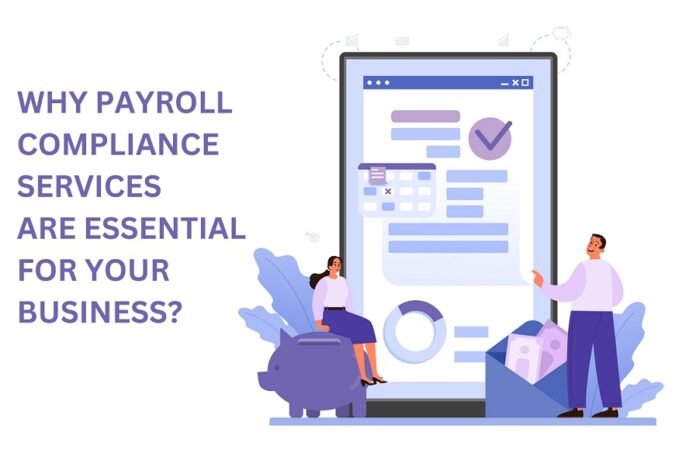Understanding Small Business Payroll Basics
Starting a business requires juggling several tasks, including payroll administration. Effective payroll processes compensate workers for their hours and perks. It requires accurate computations, timely payments, and tax deductions. Small business owners must pick a bi-weekly or monthly payroll plan that promotes employee happiness and cash flow. To avoid disagreements and provide financial stability for the firm and its employees, accurate payroll creates a trustworthy workplace.
Maintaining Payroll Compliance: Legality
Payroll administration requires careful compliance with federal, state, and local tax rules. Tax authorities may fine payroll tax errors. Small company owners must stay current on tax rules and accurately calculate tax withholdings for each pay period to reduce this risk. Recording all payroll actions is essential for audits and business decisions.
In-house vs. Outsourced Payroll Processing
Small firms must decide whether to manage payroll internally or outsource it. Internal processing may provide more instant monitoring and control, which is crucial for handling sensitive employee data. However, outsourcing payroll companies
to skilled organizations can decrease administrative complexity and mistakes. Consider a payroll provider’s reputation, services, and support to establish a partnership that matches your business’s requirements and ideals.
Time Tracking and Payroll Integration
Labor expenses and payroll accuracy depend on timekeeping. Businesses may now connect time tracking with payroll systems thanks to technological advances. Data input is easier and hours are reported more accurately with this coherence. Modern time monitoring systems may distinguish between normal hours, overtime, and paid time off, ensuring labor compliance. This connection can help small firms improve operations and engage happier, more engaged workers who believe they’re being paid appropriately.
Streamlining Payroll using Tech
Technology has changed almost every corporate function, including payroll. Nowadays, payroll processing is automated, resulting in more accuracy and efficiency. Modern payroll systems may automate complex computations, manage tax and benefit withholdings, and transfer employee paychecks straight into their bank accounts on schedule. Business owners should consider integration, scalability, and user experience when choosing payroll software.
Impact of Employee Classification on Payroll
Independent contractors and employees differ greatly in payroll and taxes. Employee misclassification can result in incorrect tax reporting and fines from employment and tax agencies. Small firms must comprehend IRS and other agency requirements to categorize workers appropriately. This ensures payroll taxes are deducted and employees receive their legal benefits. Fair classification affects employee morale and retention, not simply compliance.
Employee Benefits and Payroll Management
Health insurance, retirement savings programs, and vacation time are payroll factors and part of remuneration. These perks and payroll deductions must be properly managed by small enterprises. To minimize costly mistakes, payroll and benefits administration must be closely monitored. For openness and understanding, employers must inform employees how their benefits decisions influence their paychecks.
Payroll Errors and Corrections
Even the most diligent payroll system makes mistakes. Payroll errors require immediate attention. To preserve confidence, businesses should have a plan to rectify errors, including issuing more checks, updating tax forms, and talking with employees. Businesses may reduce the impact of payroll mistakes on operations and employee well-being by adopting clear processes.
Multi-State Payroll Issues
Small enterprises regularly hire labor from various states as the workforce becomes more mobile and distant. Geography and state-specific tax laws complicate matters. Employers must be watchful and alter their payroll systems to fulfill state regulations for resident personnel. To prevent fines and assure compliance, engage multi-state payroll lawyers or tax specialists.
Year-End Payroll Preparation
Payroll departments must examine their yearly payroll activity at year’s end. Finalizing employee earnings statements, filing government reports, and reconciling payroll and tax withholdings are year-end tasks. Create an end-of-year checklist to fulfill all chores swiftly and properly. Manage this yearly cycle carefully to ease into the new fiscal year.
Payroll Management Resources for Small Businesses
Payroll administration might be complicated, but there are many resources. The IRS Employer’s Tax Guide is a great resource for understanding payroll tax regulations. Professional forums allow colleagues to discuss payroll issues, and local small company development centers can give individual support. These tools can help small business owners manage payroll legally and effectively.
Read More: Ransomware-Ready: Strategies for Safeguarding Your Business



